In celebration of Women’s Month, a Let’s Talk It Over (LTiO) Webinar entitled “WOMENtrepreneurs in the Digital Era” was conducted on 25 March 2021 via the University of the Philippines Open University’s (UPOU) Networks, Facebook, and Youtube.
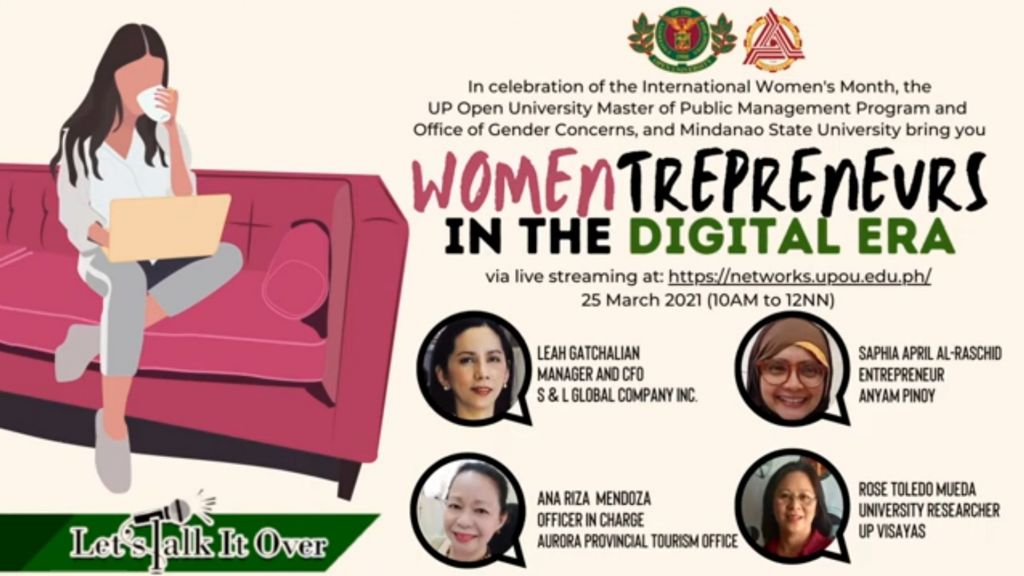
The webinar was made possible by the Master of Public Management (MPM) Program of the Faculty of Management and Development Studies (FMDS) and the Office of Gender Concerns (OGC) of UPOU in partnership with Mindanao State University (MSU) – Iligan Institute of Technology, Gender and Development Resource Center and the Blended Learning Network Zussamenarbeit (BLENZ). BLENZ is composed of participants of the blended learning course on entrepreneurship for Germany alumnae—a program aiming to promote women empowerment across sectors.
Kai Tomzig, the Cultural Attaché of the German Embassy to the Philippines, opened the webinar by emphasizing women’s significant role in achieving smart, sustainable and inclusive growth, which is among the United Nations’ Sustainable Development Goals. Tomzig noted that companies run by women, or by both men and women, are more successful and tend to have happier employees. With this, he stated that Germany has a national agency that supports and encourages women to launch their own start-up. Tomzig urged community the to call out discrimination, lead by example and advocate for necessary changes in laws to achieve a model society that honors women with equal opportunities.
Irina Scheffmann, Deutsche Gesellscahft fur Internationale Zusammenarbeit (GIZ) GmbH Philippine Country Director, was also present to acknowledge women stepping up in the ever-changing business landscape. Scheffmann said that it’s time to give more attention to the achievements and potential of women entrepreneurs. Despite factors concerning economic participation and opportunities, educational attainment, political empowerment and survival, Scheffman noted that the Philippines is among the countries that have been moving to close the gender gap in businesses over the years. However, the global society still has a long way to go in terms of pushing for empowerment.
The webinar’s main speakers were exceptional women who have established their presence in their respective fields—business, tourism, and research and development.
First up was Leah Gatchalian, manager and chief financial officer of international trading group S&L Global Company Inc. She presented “The Art of Digital Mentoring for Businesswomen”. With the current global pandemic, the mode of mentoring is now more reliant on digital platforms. Gatchalian discussed the difference between face-to-face mentoring and digital mentoring. According to her, being a digital mentor requires the ability to motivate people to learn and engage in discourse. Other advantages in digital mentoring include more access to training opportunities and finding mentors with distinct experiences.
On the other hand, Gatchalian cited face-to-face mentoring as the mode that can establish better connection among parties involved. She then encouraged women to not just take space in the business sector, but to also serve as mentors to other women, especially those who are struggling in the community.
The next speaker was Sophia April Al-Raschid, founder of social enterprise Anyam Pinoy. Al-Raschid shared her business experiences through her presentation “Weaving the Threads of Hope among Indigenous Women in the Digital Era”. Starting with millenium development goal number one, which is to eradicate extreme poverty and hunger, Al-Raschid said that it is integral for women to help the incapacitated during the pandemic.
She noted that gender equality is still an issue in the weaving communities, but that the goal on industry innovation and infrastructure as well as responsible consumption and production is being achieved by supporting indigenous businesses. During an unprecedented time such as this, entrepreneurship is key, and establishing networks that will administer economic advancement in independent communities is vital to drive positive change.
According to Al-Raschid, when things are not working, pivoting is critical to survival and effective business transformation. Here are the steps to pivot a start-up: talk to customers and note their challengers, create your minimum viable product (MVP), market your MVP, gather feedback, improve your MVP, and iterate steps until customers patronize your products. Al-Raschid greatly believes in the impact of social entrepreneurship in empowering indigenous communities. Using the SWOT (strengths, weaknesses, opportunities, and threats) Analysis, Al-Raschid imparted the lessons she learned and future prospects for her social start-up.
Aside from the business industry, many women have continued to uphold notable work in other fields, particularly tourism. One of them is Ana Riza Mendoza, officer-in-charge of the Aurora Provincial Tourism Office. She discussed “Tourism and Travel for the Wander Woman”—how much travel has changed now that we are experiencing a pandemic. From the age of discoverers, explorers and dreamers to the birth of leisure travel and rise of mass tourism, tourism and travel has inevitably changed the course of the world.
Mendoza also shared a virtual tour of Aurora and discussed its major projects, programs and activities in line with its vision of becoming a global eco-tourism destination. Furthermore, she presented the current travel trends and emerging tourism niches that will dictate the year 2021 and beyond.
Finally, university researcher Rose Toledo Mueda from the University of the Philippines Visayas concluded the webinar with her presentation, “Juana Tahong, any Juan? (Better quality and safer mussel)”. Toledo encouraged women to be social entrepreneurs and venture into the potential of the country’s coastal communities. With the Philippines being one of the major consumers of shellfish, Filipinos are exposed to several unrecorded number of food borne illnesses and diseases, even deaths. UP Visayas offers solutions in terms of problems in shellfish. The recirculation depuration system is among its new developments that aid in producing safer shellfish.
As a business opportunity, Mendoza recommended relayed and depurated mussels for high quality and safer tahong. She said that mussel culture is a major source of income in many coastal communities, but that its potential is not optimized due to non-compliance with food safety requirements. The competitive advantage of relayed and depurated mussel promotes inclusive growth with as much as 316 percent return on investment in a payback period of three months (for a start-up cost of P300,000 to P500,000). Many mussel products have already reached high-end markets in the Philippines and have adapted new technology. For researchers and start-up entrepreneurs, Mendoza posed the question of whether one is a passionate change-maker—one who is willing to contribute to the social development of the community.▪
Written by Marian M. San Pedro • Edited by Larry N. Cruz and Primo G. Garcia

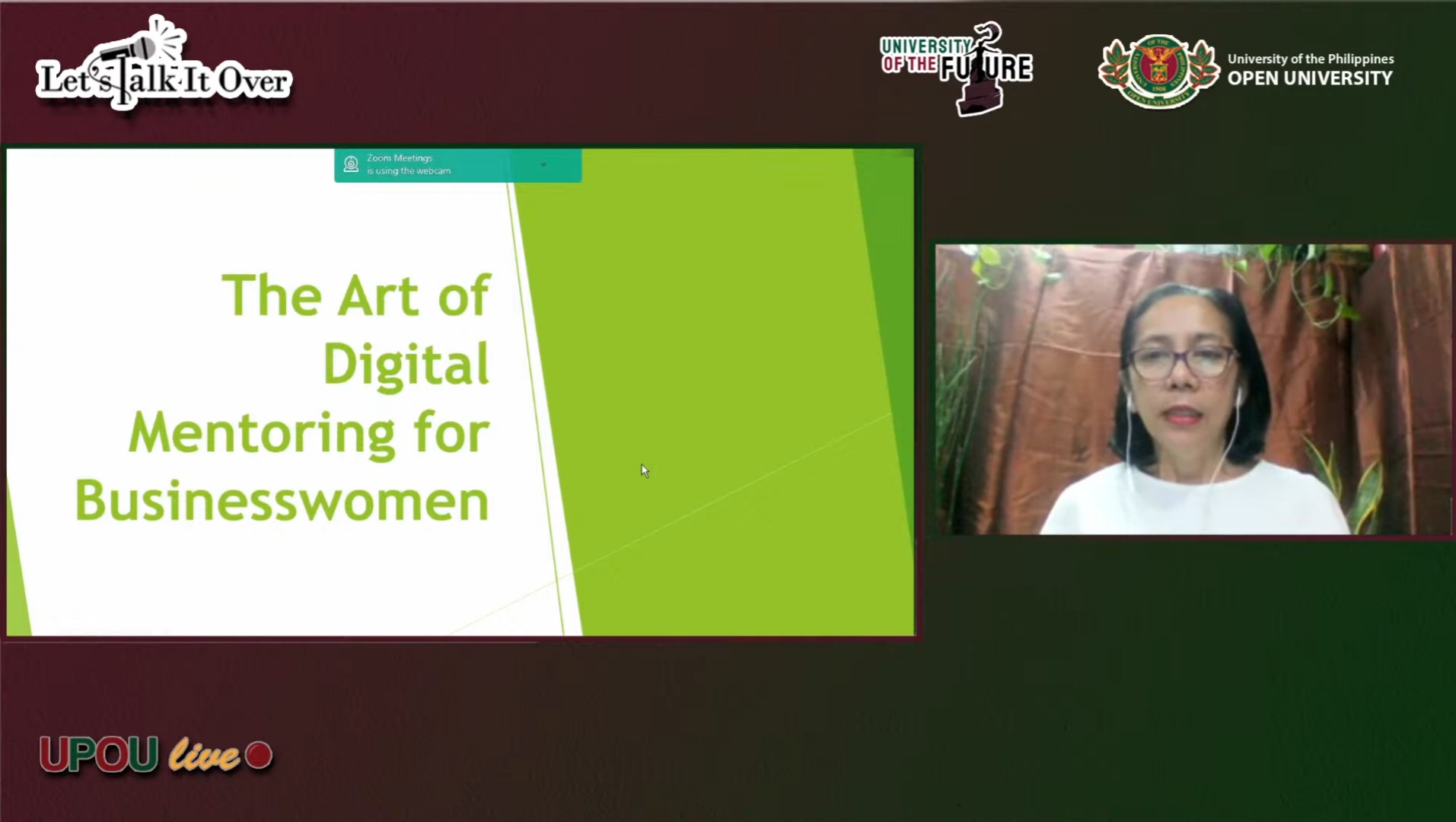
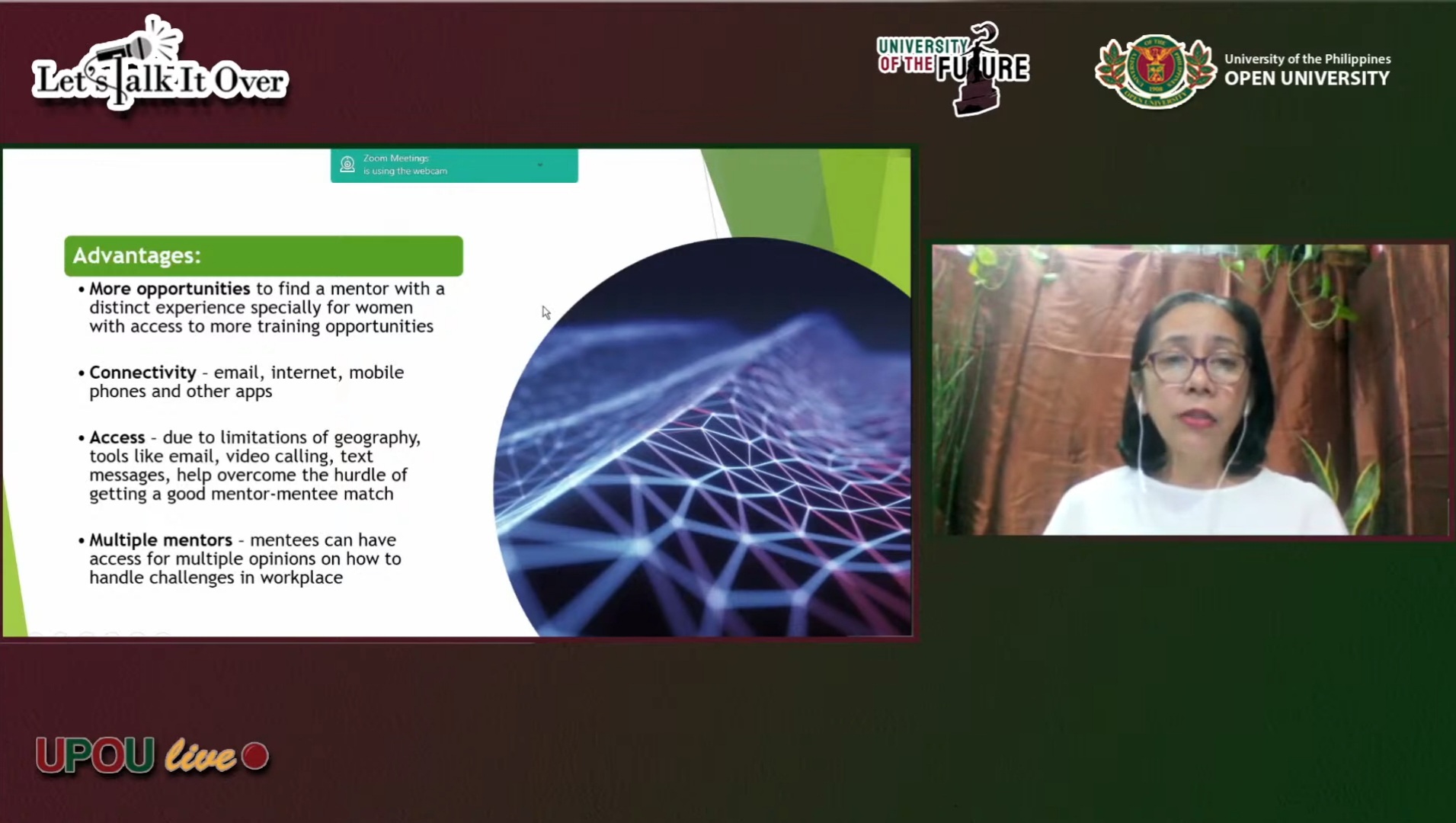
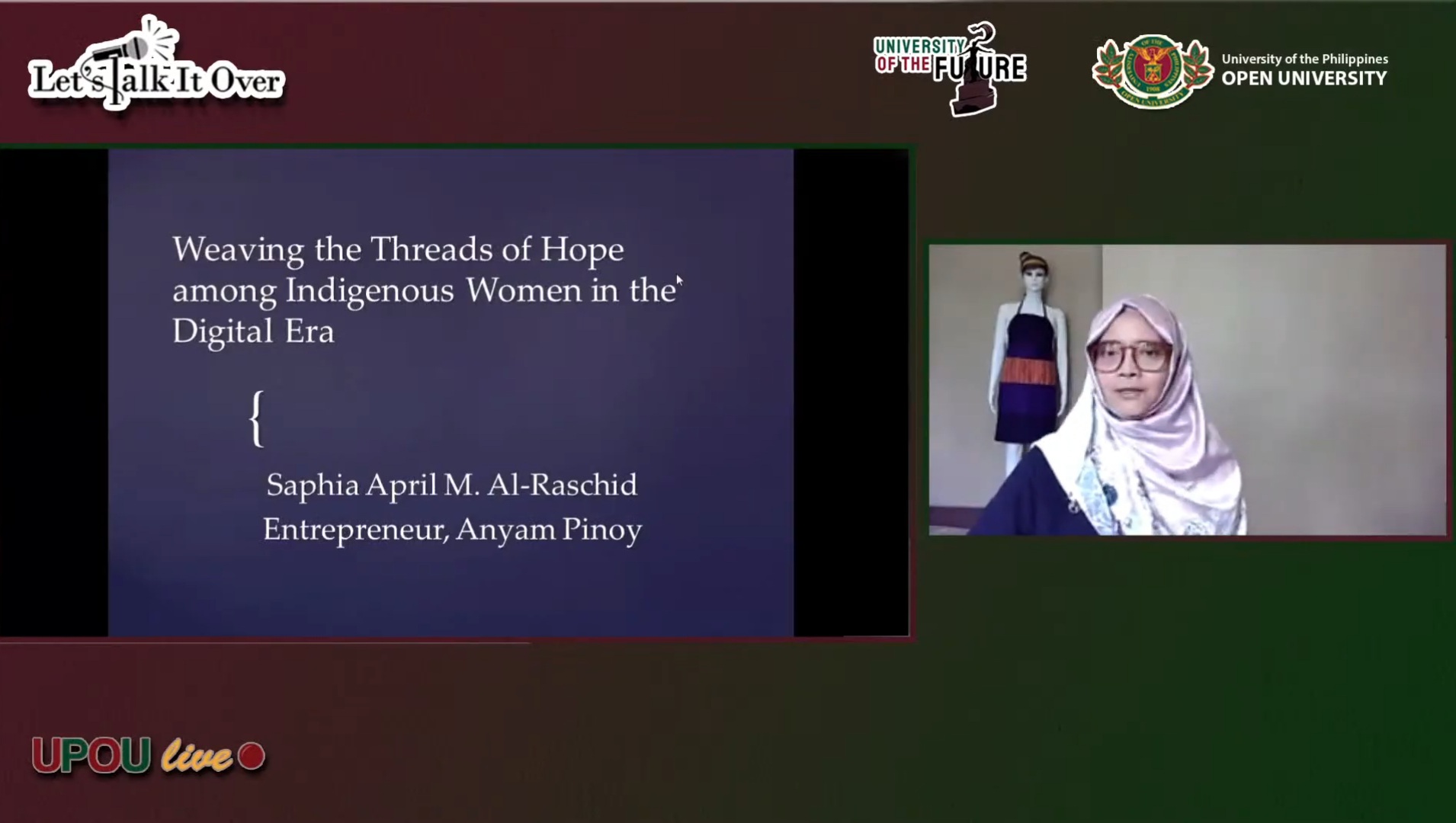
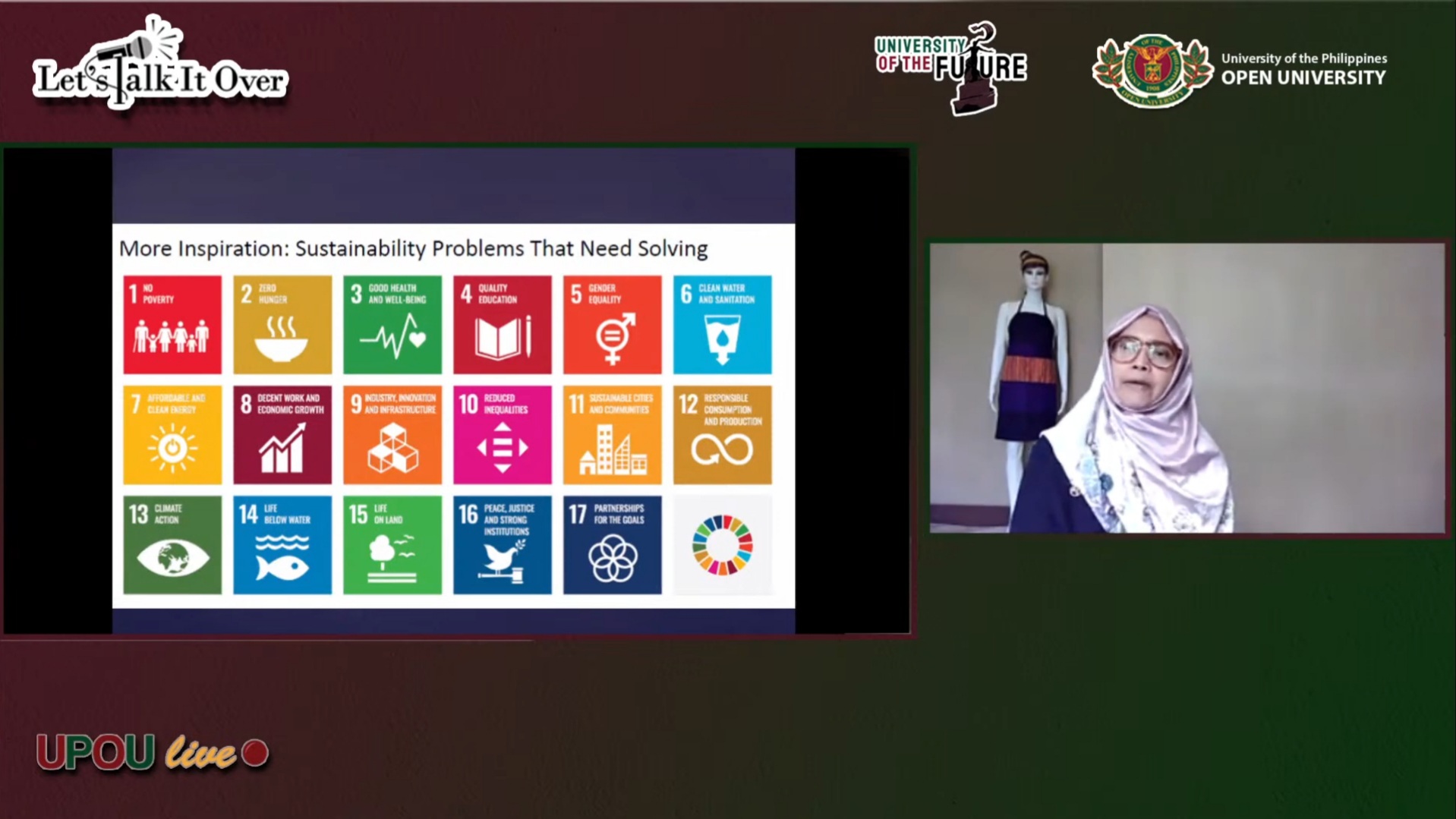
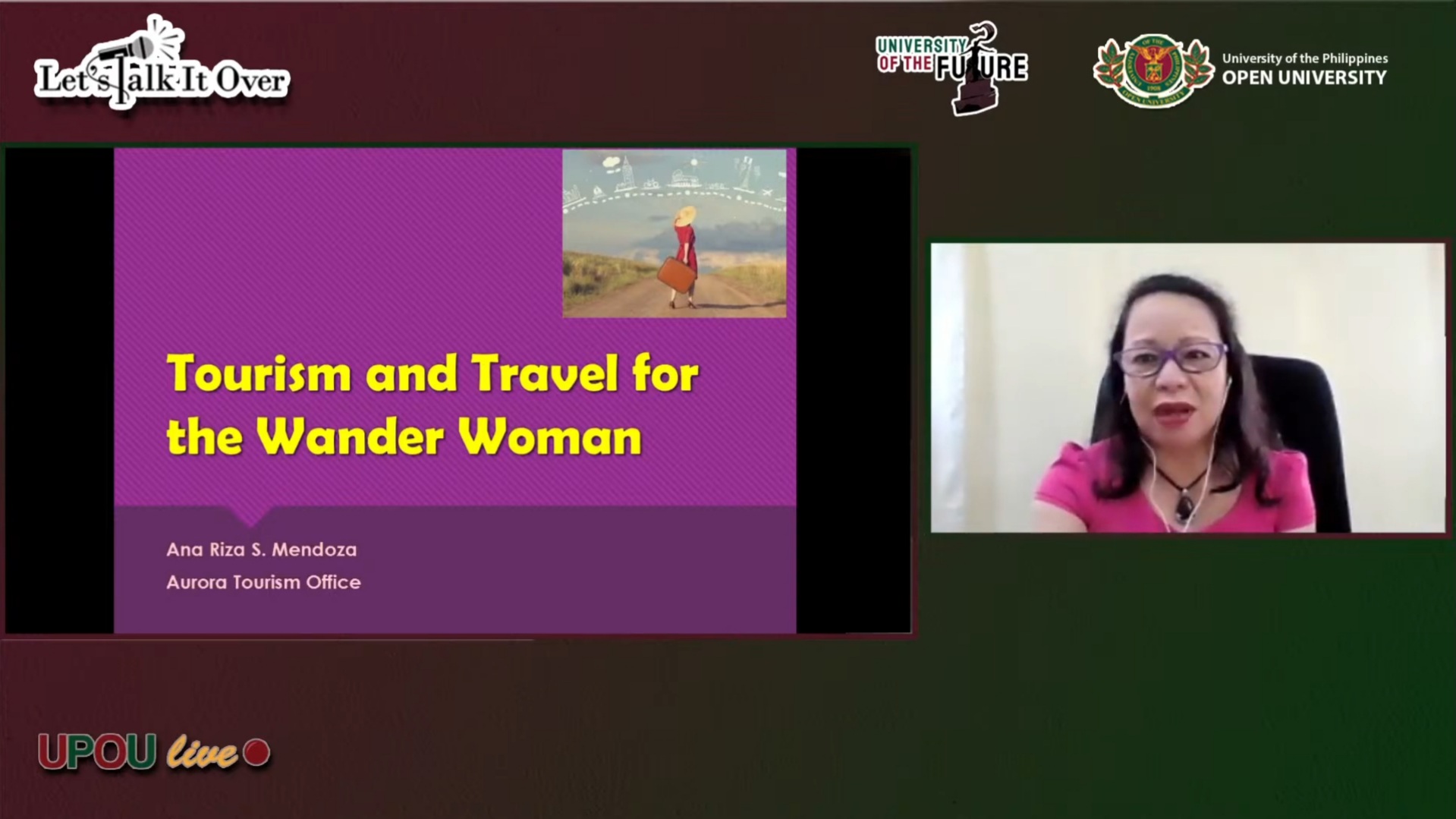
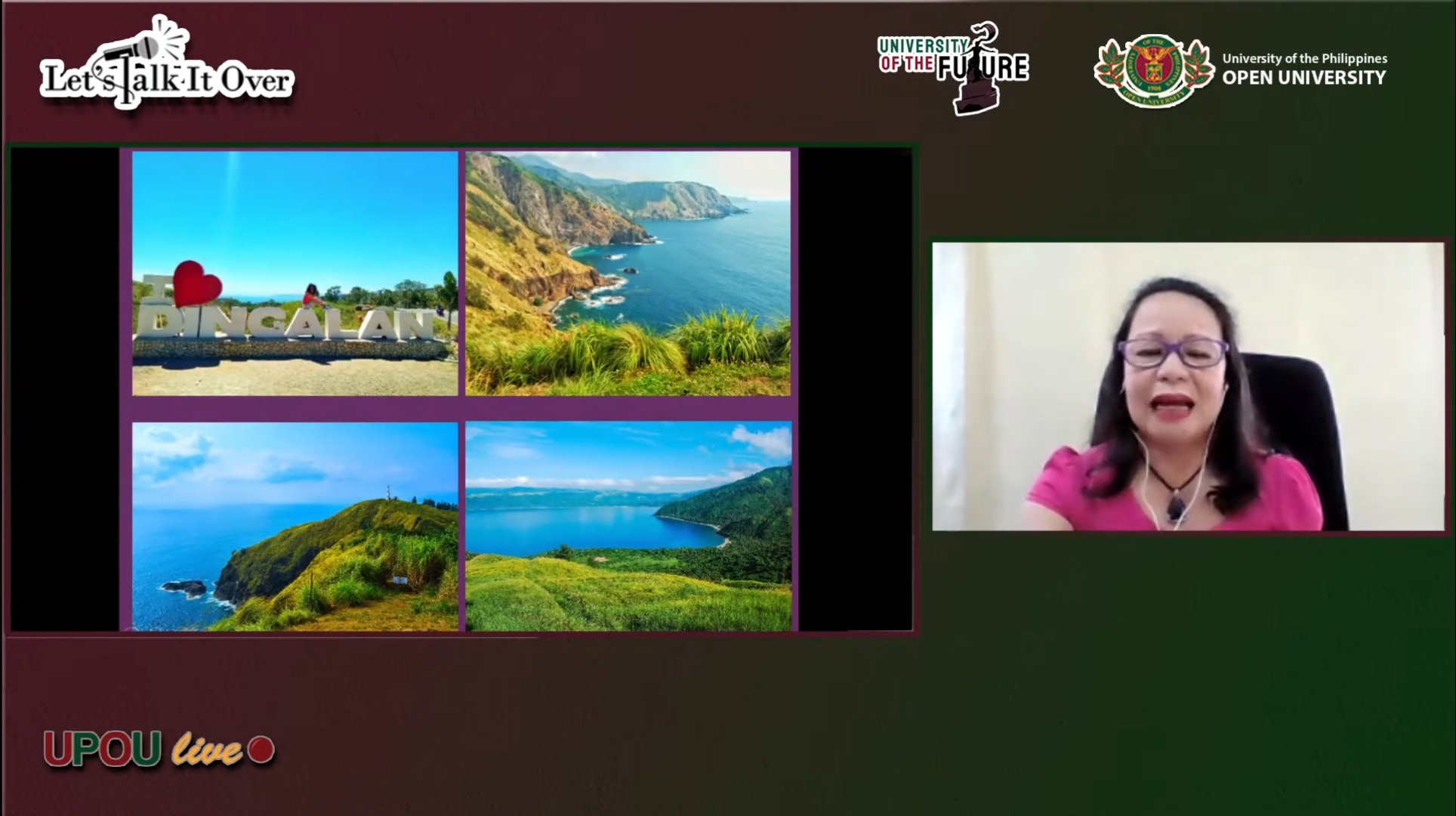
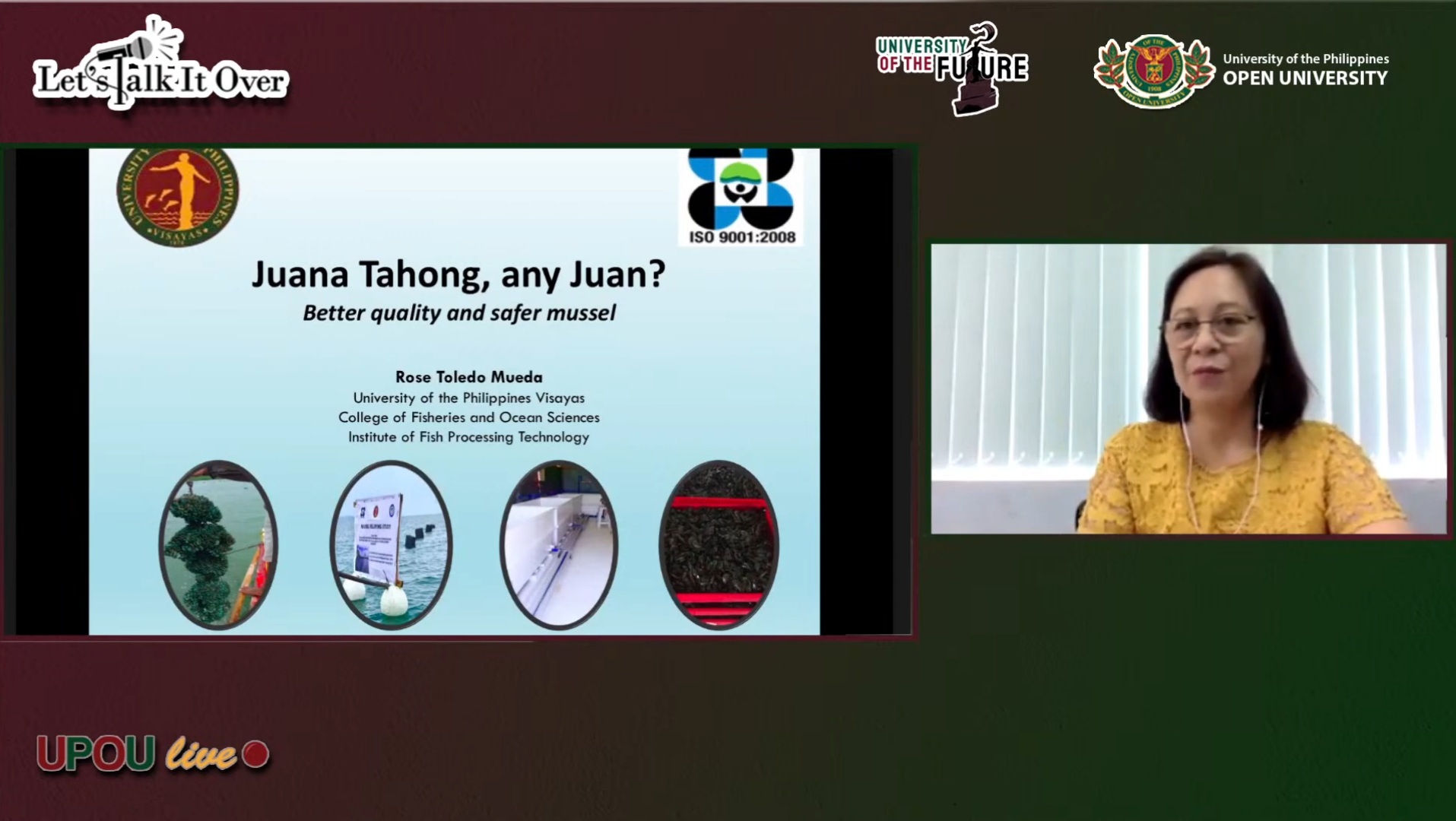
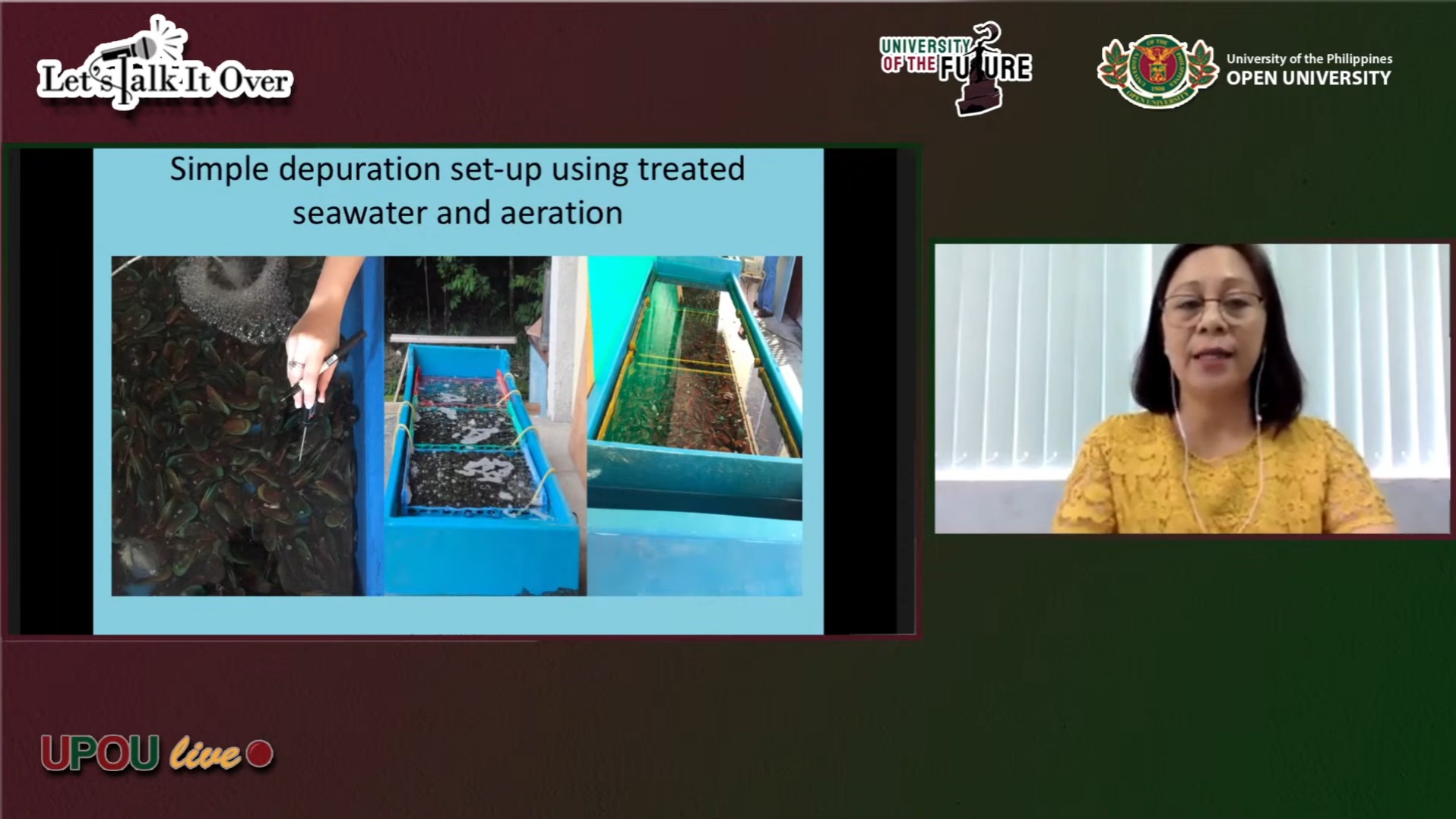
















FMDS Socials